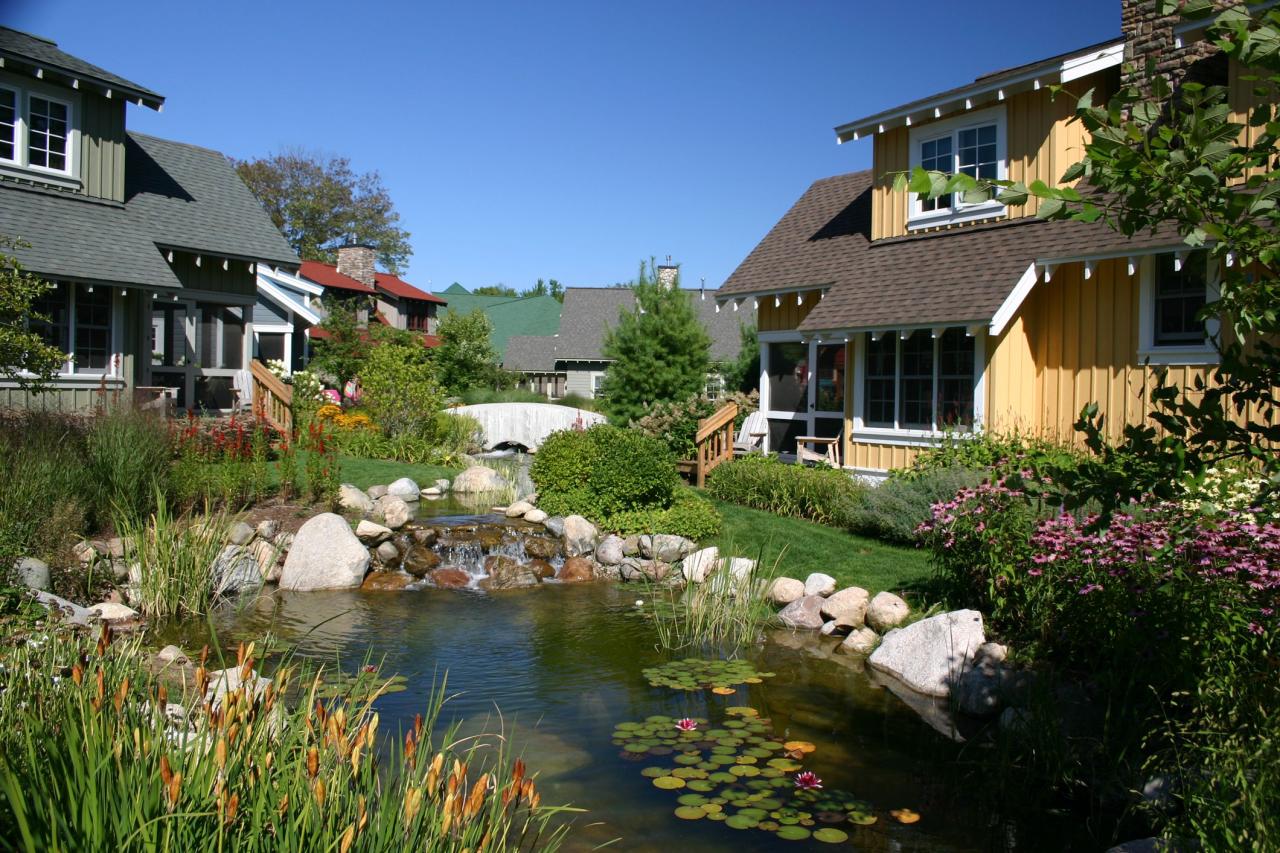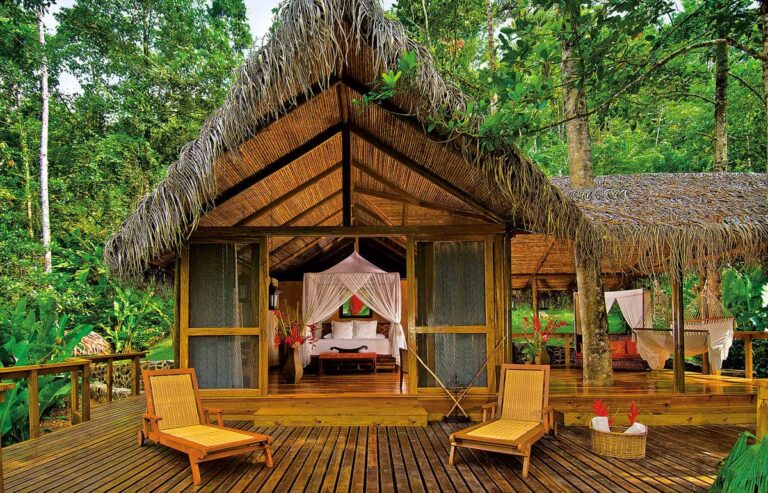In an increasingly environmentally conscious world, eco-hotels have emerged as pioneers in the hospitality sector, demonstrating that luxurious comfort and environmental responsibility can not only coexist but thrive together. These innovative establishments go beyond mere sustainability, often embracing regenerative practices that actively contribute to the well-being of the planet and local communities. For travelers seeking to minimize their ecological footprint while enjoying a truly enriching and responsible stay, eco-hotels offer the perfect synergy of purpose and pleasure. This extensive article will explore the core principles of eco-hotels, their growing impact on the tourism industry, and how they are shaping the future of sustainable travel.
What Defines an Eco-Hotel?

An eco-hotel isn’t just about having a recycling bin; it’s about an overarching commitment to environmental stewardship and social responsibility embedded in every aspect of its operation, from construction to cuisine.
A. Sustainable Design and Construction Practices
The journey of an eco-hotel often begins with its very foundation. Sustainable design and construction practices are paramount, focusing on minimizing environmental impact throughout the building process. This includes using locally sourced, renewable, and recycled materials (like reclaimed timber, bamboo, or recycled steel), employing passive solar design to reduce energy consumption, and implementing efficient insulation to minimize heating and cooling needs. The aim is to create structures that harmonize with their natural surroundings, often blending seamlessly into the landscape rather than imposing upon it. Green roofs, permeable pavements, and rainwater harvesting systems are common features, illustrating a deep respect for the ecosystem.
B. Energy Efficiency and Renewable Power
At the heart of an eco-hotel’s operations is a relentless pursuit of energy efficiency. This involves everything from LED lighting and energy-star rated appliances to smart room management systems that turn off power when guests leave. More significantly, many eco-hotels generate their own power using renewable sources such as solar panels, wind turbines, or even geothermal systems. The goal is to reduce reliance on fossil fuels, significantly lowering their carbon footprint and contributing to a cleaner energy grid. Some properties even achieve net-zero or energy-positive status, producing more energy than they consume.
C. Water Conservation and Management
Water is a precious resource, and eco-hotels prioritize its conservation and responsible management. This means implementing low-flow fixtures in bathrooms, using greywater recycling systems for irrigation or toilet flushing, and collecting rainwater for various uses. Landscaping often features native, drought-resistant plants that require minimal irrigation. Staff and guests are educated on water-saving practices, turning every shower and flush into an act of environmental responsibility. Some hotels even treat their wastewater on-site to return clean water to the local ecosystem.
D. Waste Reduction and Recycling Programs
A comprehensive waste reduction and recycling program is a non-negotiable for eco-hotels. This goes far beyond standard recycling bins. It involves minimizing single-use plastics (e.g., refillable amenities instead of small plastic bottles), composting organic waste from kitchens, and actively seeking to reduce food waste. Partnerships with local farms for composting or donation programs are common. The ultimate aim is to move towards a zero-waste model, where everything that enters the property is either reused, recycled, or composted.
E. Local Sourcing and Organic Cuisine
Eco-hotels strongly emphasize local sourcing for their food and other supplies. This reduces transportation emissions, supports local farmers and producers, and ensures freshness. Many feature organic gardens on-site or partner with nearby organic farms. The dining experience often reflects seasonal availability and highlights regional culinary traditions. By choosing local and organic, eco-hotels not only reduce their environmental impact but also offer guests a more authentic and healthier gastronomic journey.
F. Community Engagement and Social Responsibility
True eco-hotels extend their commitment beyond environmental concerns to include social responsibility and community engagement. This means fair employment practices for staff, supporting local businesses, investing in local infrastructure or education, and respecting indigenous cultures. Some hotels offer educational programs for guests on local conservation efforts or cultural preservation. The idea is to ensure that the hotel’s presence benefits the community economically and socially, fostering a positive symbiotic relationship.
The Evolution of Green Hospitality

The concept of “green hotels” has matured significantly over the past few decades, evolving from a niche concern to a driving force within the global hospitality industry.
A. From Niche Concept to Mainstream Demand
What began as a niche movement, primarily appealing to hardcore environmentalists, has now blossomed into a mainstream demand. A growing number of travelers, from millennials to baby boomers, are actively seeking out sustainable travel options. This shift is driven by increased environmental awareness, a desire for authentic experiences, and the understanding that responsible choices can lead to richer travel. Hotel brands that ignore this trend risk falling behind.
B. Certifications and Standards
The proliferation of certifications and standards (e.g., LEED, Green Globe, EarthCheck, Rainforest Alliance) has brought much-needed credibility and transparency to the eco-hotel movement. These third-party certifications audit a hotel’s environmental performance across various metrics, providing travelers with a reliable “green seal of approval.” While not all eco-hotels are certified, those that are demonstrate a verifiable commitment to rigorous environmental practices, building trust with guests.
C. Technological Advancements in Green Solutions
Rapid advancements in green technology have made it easier and more cost-effective for hotels to implement sustainable practices. Innovations in solar energy, smart building management systems, water purification, and waste-to-energy solutions allow hotels to achieve higher levels of sustainability without compromising on guest comfort or operational efficiency. This continuous innovation pushes the boundaries of what’s possible in eco-hospitality.
D. The Rise of Regenerative Tourism
Beyond simply minimizing harm, many leading eco-hotels are now embracing regenerative tourism. This philosophy aims to leave a place better than it was found. It involves active restoration of ecosystems, direct investment in community upliftment, and educational programs that empower both guests and locals. It’s a proactive approach to sustainability, moving from “do no harm” to “do good.” This represents the cutting edge of responsible travel.
E. Integration with Wellness and Experiential Travel
Eco-hotels often naturally align with the growing trends of wellness and experiential travel. Their serene natural settings, focus on healthy, local food, and opportunities for outdoor activities foster a sense of well-being. Furthermore, their commitment to local culture and conservation often provides guests with unique, meaningful experiences that resonate deeply, enhancing the overall journey.
The Economic and Societal Impact of Eco-Hotels
The influence of eco-hotels extends far beyond their individual properties, creating significant positive ripples throughout local economies and the broader society.
A. Long-Term Cost Savings and Operational Efficiency
While initial investments in green technologies might be higher, eco-hotels often achieve significant long-term cost savings through reduced energy and water consumption, lower waste disposal fees, and sometimes even government incentives for sustainable practices. This operational efficiency contributes to a healthier bottom line, proving that going green can be financially smart.
B. Enhanced Brand Reputation and Guest Loyalty
Operating as an eco-hotel significantly enhances a property’s brand reputation, attracting a growing segment of environmentally conscious travelers. This commitment often translates into higher guest loyalty, as travelers seek out brands that align with their values. Positive word-of-mouth and strong online reviews from satisfied “green” guests become powerful marketing tools.
C. Job Creation in Green Industries
The development and operation of eco-hotels foster job creation not only within the hospitality sector but also in related green industries. This includes roles in renewable energy installation and maintenance, sustainable agriculture, eco-friendly product manufacturing, and environmental consulting, contributing to a diversified and future-proof economy.
D. Preservation of Natural and Cultural Heritage
By minimizing their environmental footprint and actively engaging with local communities, eco-hotels play a crucial role in the preservation of natural ecosystems and cultural heritage. They educate guests on local conservation issues, support traditional crafts, and ensure that tourism is a force for good, protecting the very assets that attract visitors.
E. Setting New Industry Standards and Inspiring Others
Eco-hotels act as living laboratories and showcases for sustainable practices, effectively setting new industry standards. Their success inspires other hotels and businesses to adopt more environmentally friendly operations, creating a ripple effect that elevates the overall sustainability performance of the entire tourism sector. They are innovators driving positive change.
How to Choose Your Ideal Eco-Hotel
With the growing number of properties claiming to be “green,” it’s essential for travelers to know how to identify genuinely sustainable eco-hotels.
A. Look for Reputable Certifications
The easiest way to verify a hotel’s eco-credentials is to look for reputable certifications from recognized third-party organizations. Research what these certifications mean and ensure they are comprehensive, not just superficial badges. Examples include LEED, Green Globe, EarthCheck, and the Rainforest Alliance Sustainable Tourism Standard.
B. Research Their Specific Green Practices
Go beyond the green marketing claims and research their specific green practices. Does their website detail their energy sources, water conservation methods, waste management, and local sourcing policies? A truly committed eco-hotel will be transparent about its efforts and results. Look for concrete examples rather than vague statements.
C. Read Guest Reviews with a “Green” Lens
Pay attention to guest reviews, specifically looking for comments related to the hotel’s sustainability efforts. Do guests mention visible signs of eco-practices? Is there feedback on the quality of local food or the staff’s knowledge of environmental initiatives? This can provide real-world insights into the hotel’s commitment.
D. Consider the Location and Its Ecosystem
Think about the location of the hotel and its surrounding ecosystem. Does the hotel’s presence seem to enhance or detract from the natural environment? Are they involved in local conservation projects relevant to their specific location (e.g., coral reef protection for a coastal hotel, forest regeneration for a mountain lodge)?
E. Assess Their Community and Social Initiatives
A holistic eco-hotel cares about people as much as the planet. Research their community and social initiatives. Do they employ local staff fairly? Do they support local schools or health programs? Do they respect and celebrate local culture? These aspects are crucial indicators of true sustainability beyond just environmental metrics.
The Future of Eco-Hotels
The path forward for eco-hotels is one of continuous innovation and deeper integration into the fabric of responsible global tourism.
- Net-Positive and Regenerative Models: More hotels will strive to become net-positive, actively regenerating ecosystems and communities, leaving a significantly positive impact rather than just minimizing harm.
- Hyper-Localized Experiences: An even stronger emphasis on hyper-localized experiences, connecting guests directly with the local environment, culture, and conservation efforts through immersive activities and educational programs.
- Advanced Smart Green Technologies: Integration of cutting-edge smart green technologies, including AI-powered energy management, advanced water recycling systems, and even vertical farms within or near the properties for ultra-fresh, hyper-local food.
- Circular Economy Integration: Eco-hotels will increasingly adopt circular economy principles, designing out waste and pollution, keeping products and materials in use, and regenerating natural systems, making every resource count.
- Carbon-Neutral Certifications as Standard: What is currently an aspirational goal for many will become a widely accepted standard for carbon-neutral certifications, driven by consumer demand and regulatory pressures, making truly green hotels the norm rather than the exception.
Conclusion
Eco-hotels represent more than just a trend; they are a fundamental shift in how the hospitality industry operates, prioritizing the planet and its people alongside profit. For the modern traveler, choosing an eco-hotel isn’t just a booking; it’s a statement, an investment in a greener future, and an opportunity to experience the world with a clear conscience and an enriched spirit. They are leading the charge towards a truly sustainable and responsible global tourism industry.










